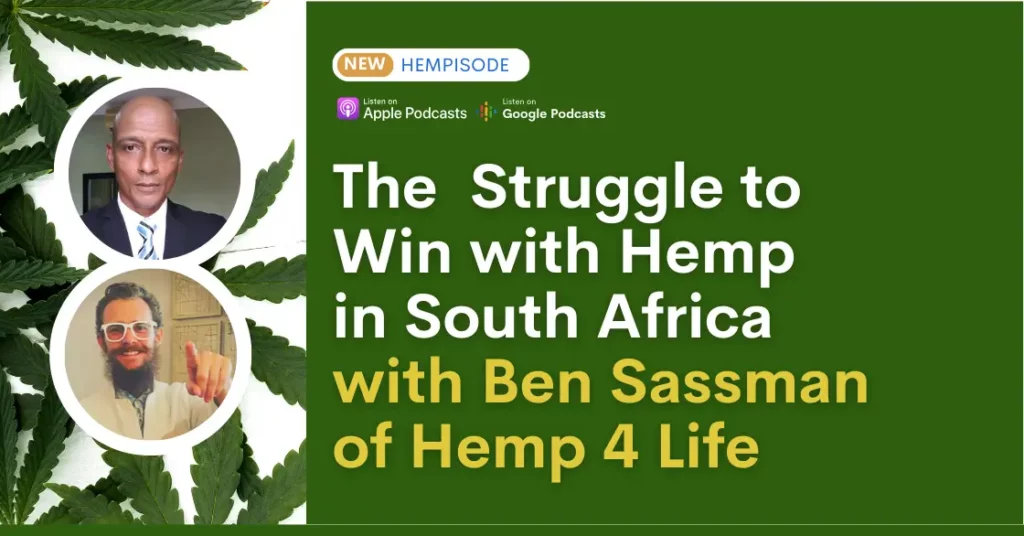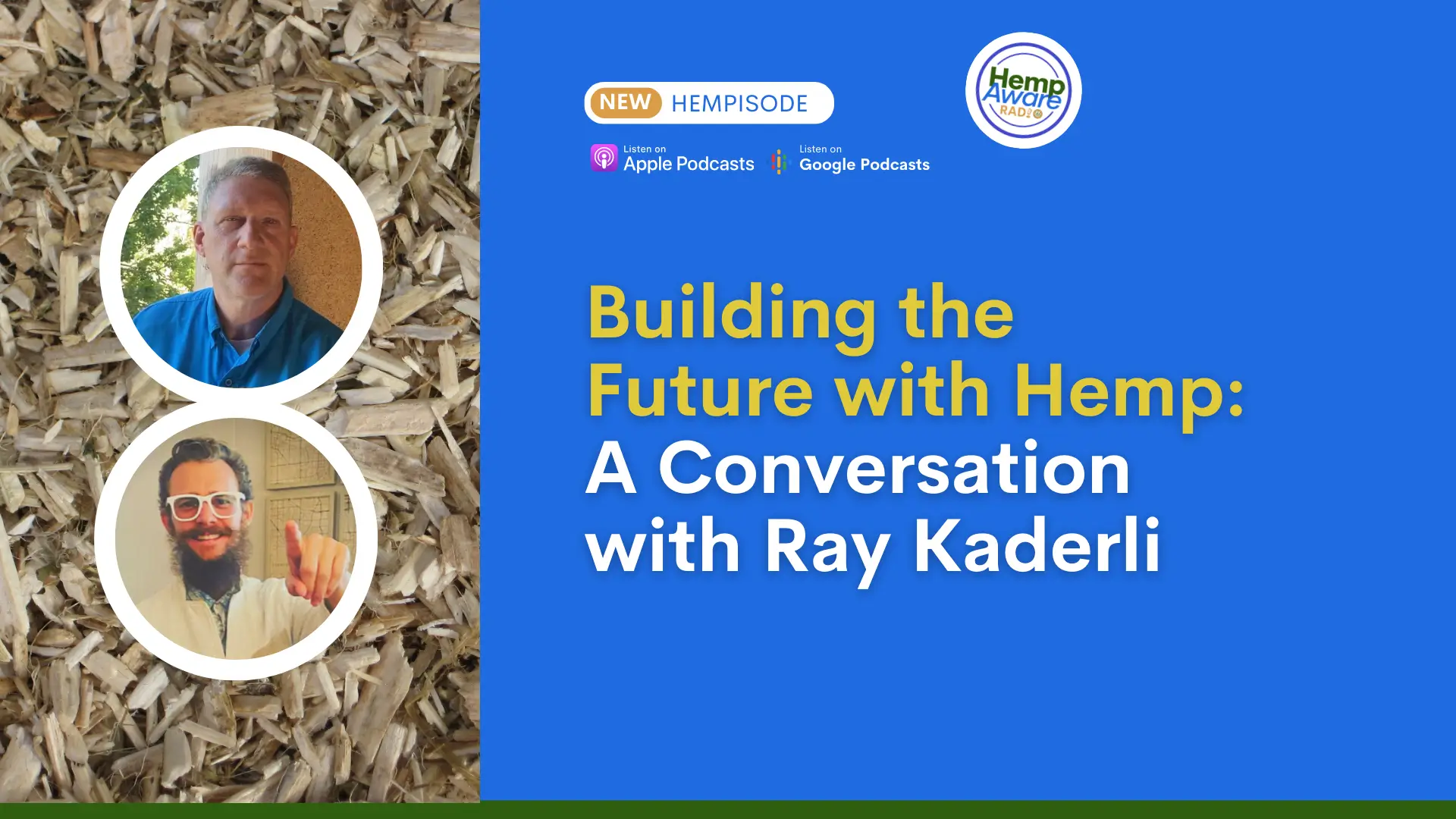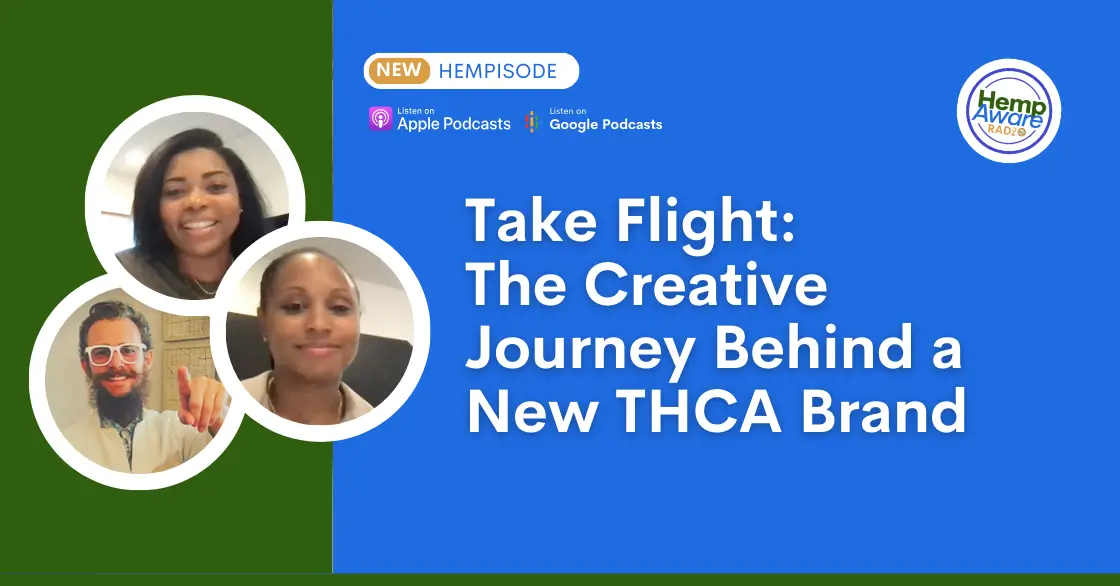In a world where traditional farming practices are being reevaluated, the hemp industry stands out as a beacon of opportunity. Yet, the path isn’t always smooth.
Ben Sassman, a newcomer to the hemp cultivation scene in South Africa, embodies the spirit of a true entrepreneur.
Despite numerous obstacles—from securing funding to navigating a market still learning about hemp—his story exemplifies persistence and innovation.
What drives someone from a secure background to pursue the uncertain world of hemp cultivation?
Grab a seat, and let’s explore his journey together!
TL;DR: Ben’s journey in the South African hemp industry showcases resilience and lessons for aspiring entrepreneurs. Securing buyers and ensuring quality are paramount as hemp continues to grow in popularity.
The Hemp Awakening: South Africa’s Industrial Hemp Landscape
The hemp industry in South Africa is growing rapidly.
This *awakening* is a result of numerous legal milestones and the increasing recognition of hemp’s potential.
It’s an exciting time for entrepreneurs and farmers alike. But what exactly has led to this significant shift in the industrial landscape?
1. Evolution of the Hemp Industry
Historically, hemp was part of South Africa’s agricultural narrative. However, it fell out of favor, mainly due to restrictive laws.
The turning point came in 2018. South Africa legalized hemp cultivation, opening doors for many eager to explore its benefits.
Since then, the number of hemp permits has skyrocketed. There were 371 permits issued as of 2023. This surge tells a compelling story of opportunity. But it also highlights the growing pains within the sector.
- 2018: Legalization of hemp cultivation.
- 2019: First permits issued, leading to groundwork for the industry.
- 2022: New businesses, like Hemp for Life, establish themselves.
2. Legal Milestones and Their Impact
Legalization was just the beginning. It created a framework for the hemp industry.
Yet, navigating this framework isn’t always simple. Legal challenges continue to surface. Bureaucracy can be daunting, as many new entrepreneurs will attest.
“Hemp is the number one crop that traditional farmers are converting to.”
This quote reflects the momentum building in the agricultural sector.
Traditional farmers recognize the financial prospects of hemp farming. But along with opportunity comes significant hurdles.
3. Major Players and Initiatives
Several key figures and organizations are driving this hemp renaissance. For example, Ben Sassman from Hemp for Life is a prominent entrepreneur. He’s on a mission to bring hemp’s potential to life.
Through his startup, he aims to provide high-quality CBD hemp extract.
Despite facing challenges like funding and seed quality, he highlights the importance of perseverance.
He uses advanced technologies and business strategies to overcome hurdles. This includes sourcing genetically engineered seeds that maximize yield.
Challenges Faced by Entrepreneurs
Despite the legal advancements, challenges remain. Entrepreneurs struggle with:
- Funding: Commercial banks are hesitant to invest in the hemp sector.
- Quality control: Consistent seed quality is a significant issue.
- Market competition: Establishing a buyer before production is crucial.
Ben’s story exemplifies these challenges. He has had to leverage personal finances while exploring partnerships and funding options.
This brings to light the systemic issues many face within the industry, especially along lines of race and economic opportunity.
Current Landscape and Future Outlook
So, where does the future of hemp in South Africa lie?
The potential for profitability is enormous, with sustainable practices at its core. But entrepreneurs need patience and strategic planning to thrive in this competitive environment.
The hurdles might seem high, but they also offer valuable lessons along the way.
The journey for many, including Ben, is just beginning. There’s potential not only for growth but also for innovation within the hemp sector.
As more players enter the market, we can expect to see shifting trends and heightened competition, which could lead to a more robust economy.
Summary of Data Trends
| Year | Number of Hemp Permits Issued |
|---|---|
| 2018 | Initial legal framework established |
| 2023 | 371 permits |
The journey for entrepreneurs in South Africa’s hemp sector is full of potential yet fraught with challenges.
As more individuals and businesses navigate the landscape, the hope is for a thriving industry that benefits all involved.
2. From Trade to Hemp: A Personal Evolution
In my journey as an entrepreneur, I often find myself reflecting on how different experiences shape our paths.
Take Ben, for example. His transition from a career in trade to the world of hemp farming reveals much about adaptability and courage.
But how does one go from navigating complex trade agreements to cultivating hemp? Let’s dig into this fascinating evolution.
Ben’s Diverse Career Path
- Initially, Ben worked with the US foreign commercial services and the British High Commission.
- He spent over 20 years in bilateral trade and investment roles.
- In doing so, he connected with multiple countries and gained diverse insights.
Think about it: transitioning from trade to agriculture isn’t a common leap. Yet, for Ben, it was a natural evolution. He once said,
“I always wanted to be an entrepreneur, but farming is a different beast altogether.”
This highlights the unique challenges he faced in making this shift.
Comparing Traditional and Hemp Farming
When we look at traditional farming versus hemp farming, the differences are striking.
Traditional farming focuses mostly on grains, livestock, or vegetables. It’s often more predictable because the market has been established for years.
In contrast, hemp farming is relatively new, especially after its legalization in South Africa in September 2018. Here are some key aspects to consider:
- Market Potential: While traditional crops often have fixed markets, hemp is emerging as a lucrative option for CBD products, textiles, and more.
- Growth Conditions: Hemp can grow in less-than-ideal conditions compared to some other traditional crops.
- Regulatory Hurdles: Unlike traditional farming, hemp has various legal challenges, including stringent regulations regarding THC levels.
This new market demands an understanding of the agricultural trade dynamics. How do you procure necessary resources? How do you find buyers? For Ben, the answers weren’t straightforward.
The Importance of Understanding Agricultural Trade Dynamics
Ben’s experience in trade has given him a leg up in navigating this complex landscape. His background has helped him understand how crucial it is to have strong connections and strategic planning.
For instance, he emphasizes getting a buyer before producing hemp. Why? Because with many suppliers in the market, ensuring demand ahead of time is vital.
| Duration of Ben’s Past Roles in Trade | Number of Countries Involved in Trade Promotions |
|---|---|
| 20+ years | Multiple (including the US, UK, and various African nations) |
By understanding trade dynamics, farmers like Ben can successfully navigate the complexities of global marketplaces.
The seeds of hemp can be easily obtainable, but the strategy behind planting them is what truly counts. In a field where financing options are limited—partly due to the stigma around the source crops—it becomes even more essential.
Challenges and Triumphs in Transitioning to Hemp
As Ben ventured into the hemp industry, he encountered obstacles. For example, securing funding from commercial banks proved difficult. These institutions often hesitate to finance hemp ventures due to perceived risks.
Instead, many are turning to government funding. However, it often comes with its challenges, including systemic biases that can complicate access for diverse entrepreneurs.
Ben had to rely on his personal resources and seek alternative funding options.
His journey serves as a reminder of how diverse experiences can shape our paths. Ben’s commitment to breaking barriers and providing opportunities for his community makes his story even more compelling.
As we look ahead, it’s clear that the path from trade to hemp is fraught with challenges. But with perseverance, good connections, and a clear strategy, opportunities are valid.
Navigating Funding Challenges: The Catch-22 Situation
Funding is a crucial aspect for any startup, but it becomes even trickier within the hemp industry.
Ben’s journey with Hemp for Life reveals the numerous hurdles faced by entrepreneurs trying to break into this market.
The Complexities of Funding for Hemp Businesses
Many of us know that entering a new industry can come with challenges. But how about entering a completely *newly legalized* sector?
The hemp industry in South Africa, which only became legal in September 2018, is still finding its footing. This creates a complex situation for startups like Ben’s.
Traditional financial institutions are often hesitant to provide funding for hemp businesses. They see it as a *novelty* and a perceived risk. In fact, many banks still carry the stigma from the past, associating hemp with illicit activities.
I mean, how can you convince banks to invest in something they still regard with caution?
Securing a Viable Offtake Agreement
One way entrepreneurs like Ben can strengthen their chances is by securing offtake agreements. Ben has managed to secure an agreement for 800 kilograms of CBD isolating per month with a client in the United States. That’s impressive! But it wasn’t an easy journey.
| Challenges in Securing Offtake Agreements | Strategies Utilized |
|---|---|
| Finding reliable buyers | Referral from existing connections |
| Understanding pricing models | Competitive pricing strategies |
| Market research | Utilizing diverse platforms for outreach |
Securing customers took Ben a grueling nine months. He leveraged various platforms to get the word out, ultimately landing a buyer through a referral from a Canadian company.
It’s this persistence that sets him apart and encourages would-be entrepreneurs to be just as diligent.
Government and Private Funding Hurdles
We can’t overlook the role of government funding. Ben indicates that even when turning to government institutions, they often perpetuate racial biases in issuing funds.
As a member of the “colored” community, he faces unique challenges. What does it say about our system when an entrepreneur has to fight twice as hard for funding based on their race?
This systemic issue not only affects Ben but countless others within South Africa.
Many startups are left to rely on personal finances or explore private investments. It’s a tough pill to swallow. And here’s where that catch-22 comes into play:
“It’s a catch twenty-two situation in securing funding.”
How can one establish credibility without funding, and how can one secure funding without a proven track record? It’s frustrating.
Key Data on Funding Trends
To provide a clearer picture, let’s look at some funding statistics:
| Industry Sector | Average Funding Received |
|---|---|
| Technology | $1,000,000 |
| Healthcare | $800,000 |
| Hemp Industry | $250,000 |
As we can see above, the hemp industry lags behind other sectors in terms of funding received. This lack of financial support stymies growth and innovation.
Ben’s experience sheds light on why many entrepreneurs think twice before diving into this promising yet precarious field. It really makes you think, doesn’t it?
Ben’s story not only illustrates his individual challenges but highlights a broader issue within the hemp industry.
The need for *increased awareness* and *support* from investors, banks, and government entities is paramount.
It’s a complex landscape, but with grit, determination, and a solid business plan, there’s hope yet. We can’t ignore the hard work behind breaking down these walls.
Cultivating Success: The Importance of High-Quality Seeds
When it comes to hemp farming, the *quality of seeds* can truly determine the success of the venture.
Some may ask, why is seed quality so crucial? Well, the seeds are the foundation of our crop. High-quality seeds lead to higher yields, better disease resistance, and better compliance with legal standards.
In simple terms, with good seeds, we set ourselves up for a better harvest.
1. What Makes Seed Quality Crucial in Hemp Farming
Quality seeds are like having a head start in a race. They lay the groundwork for robust plants that thrive.
With low-quality seeds, the risks mount. Farmers could see inconsistent yields, problems with THC levels, and increased susceptibility to pests.
Thus, investing in quality seeds is not just advisable; it’s essential.
Ben Sassman’s journey exemplifies this point. He faced unique challenges in sourcing genetically engineered hemp seeds from Ventura Seeds in California.
These seeds are tailored for warmer climates—perfect for South Africa. Understanding the local climate is key. It’s not just about getting seeds; it’s about getting the right seeds.
2. Ben’s Journey in Sourcing Genetically Engineered Seeds
Ben’s venture stems from years of experience in bilateral trade and investment. His interest in hemp cropped up after South Africa legalized the crop in 2018. However, his path to sourcing high-quality seeds was rocky.
South Africa struggles with *certified seed availability*. Farmers often encounter seeds with unpredictable THC levels. As Ben pointed out, “The right seeds can make or break your harvest.” This simple truth resonated deeply with him and formed the core of his seed sourcing mission.
- Key efforts Ben made:
- Engaged with suppliers in California for genetically engineered seeds.
- Prioritized buyer commitments before substantial production investment.
- Explored various funding avenues despite systemic challenges.
Despite his diligence, securing consistent seed quality remains tough in South Africa.
These obstacles push entrepreneurs like Ben to seek reliable sources abroad, ensuring compliance with legal standards while also maximizing yield.
3. Long-Term Implications of Seed Choices for Hemp Cultivation
Picking seeds is not a short-term game. The choices we make today can echo through the years. Good seeds lead to healthy plants, which lead to good harvests.
Conversely, poor-quality seeds can mean long-term issues such as lower profitability and legal troubles due to THC content violations.
Here’s where Ben’s initial seed test results come into play. His careful observations highlight the importance of seed quality:
| Seed Type | Initial Yield (kg) | THC Level (%) |
|---|---|---|
| Genetically Engineered Seeds | 450 | 0.2 |
| Conventional Seeds | 300 | 0.5 |
This table clearly shows the *percentage difference in crop yields* based on seed quality. The genetically engineered seeds produced 50% more yield than conventional seeds.
This kind of data cannot be ignored! When you’re in a competitive market, such advantages can lead to significant profit margins.
In conclusion, I think we can agree that seed quality is tantamount in hemp cultivation. The challenge is real, but the rewards can be immense with proper seed selection.
It’s not just about now but the future, as our choices shape the landscape of our farms and our bottom line. If you’re looking to thrive in hemp farming, remember the lessons from Ben’s journey. High-quality seeds are a step towards success.
5. Marketing a New Product: Strategies for Hemp Entrepreneurs
Marketing a new product can be a daunting task, especially in a niche market like hemp.
I’ve been following the journey of Ben Sassman from Hemp for Life, and his experiences shed light on the unique challenges and strategies that hemp entrepreneurs face every day.
Ben’s Journey: Finding His First U.S. Client
Securing a buyer for hemp products can take time. Ben learned this the hard way. He spent nine long months searching for his first U.S. client.
“Finding a buyer is the toughest part of the process; it took me nine months to secure one.”
His persistence paid off. After utilizing various outreach methods and platforms, he eventually succeeded through a referral from a Canadian company.
It was a significant milestone for his startup, giving him the much-needed momentum to move forward.
Challenges of Marketing Hemp Products
Marketing hemp is unlike other industries. It comes with unique hurdles that can make or break a startup’s success.
- Regulatory Issues: The legality of hemp can vary widely by region. Entrepreneurs must stay informed about local regulations.
- Market Saturation: As more players enter the industry, standing out becomes crucial. Ben had to consider pricing carefully to remain competitive.
- Lack of Funding: Commercial banks are often hesitant to finance hemp ventures. This forces many entrepreneurs, including Ben, to rely on personal savings or government funding.
These challenges require a strong marketing strategy infused with creativity and resilience.
Ben emphasizes the importance of understanding not only your product but also your target market. Knowing who buys hemp products helps tailor your marketing efforts accordingly.
Digital Marketing and Social Media for Hemp Businesses
In today’s digital age, social media and online marketing play vital roles in growing a hemp business. Here are a few avenues worth exploring:
- Social Media Platforms: Utilizing Facebook, Instagram, and LinkedIn can help reach a broader audience.
- Content Marketing: Creating valuable content that addresses audience pain points can establish authority and build trust.
- Email Marketing: Regular newsletters can keep potential buyers informed and engaged, fostering long-term relationships.
Ben’s approach to nurturing these platforms has been strategic.
He believes in the need for a thoughtful and tailored marketing plan to gain traction.
Understanding Customer Conversion Strategies
Conversion rates are crucial for any business, especially in the hemp industry. Let’s take a look at some relevant data:
| Business Aspect | Industry Average Conversion Rate |
|---|---|
| Hemp Sector | 5-10% |
| General E-commerce | 2-4% |
These statistics underscore that hemp businesses often see better engagement than traditional e-commerce.
This suggests a strong interest in hemp products, but that doesn’t mean selling is easy. It takes time, effort, and a robust understanding of the market to convert interest into sales.
The Role of International Relations
Ben’s experience also highlights the influence of international relations on market opportunities.
His background in bilateral trade has equipped him with insights into navigating complex trade landscapes.
This is invaluable when trying to expand to markets like the U.S., especially given the regulatory nuances of hemp. International partnerships can sometimes provide access to markets that are otherwise difficult to penetrate.
In conclusion, marketing hemp requires a blend of creativity, strategic planning, and a network of supportive relationships—both local and international.
As Ben demonstrated, patience, diligence, and a willingness to adapt can pave the way for success in this burgeoning industry.
Conclusion: The Future of the Hemp Industry in South Africa
The journey within the hemp industry is undeniably fascinating. Reflecting on Ben’s story, we see a blend of opportunity and adversity.
His entrepreneurial spirit shines through despite hurdles. This journey illuminates lessons that can guide others who dream of launching their own ventures.
Ben’s Entrepreneurial Journey: Lessons Learned
Ben Sassman’s path into the hemp sector began not as a farmer, but as a professional well-versed in bilateral trade and investment. He recognized a gap after the legalization of hemp in South Africa in 2018.
This shift opened doors to a lucrative market. Imagine entering a world where you can connect global buyers with local producers. This is the reality Ben sought after.
However, the road has not been smooth. Securing funding posed a significant challenge.
I mean, how discouraging is it to have a solid business model yet find banks uninterested due to the newness of hemp cultivation?
It’s a common issue that many entrepreneurs face, especially in this young industry. But Ben pushed through. His resilience is commendable.
Vision for the Future of Hemp Cultivation and Products
Looking ahead, what does the future hold for hemp in South Africa? The vision is promising. With increasing awareness of the benefits of hemp products—from CBD oils to textiles—there’s potential for growth in multiple sectors.
The demand is soaring!
And as technologies advance, companies like Hemp for Life are stepping up.
- Innovative Cultivation: Utilizing genetically engineered seeds ensures higher yields.
- Market Development: Focus on building buyer relationships before launching production.
Ben’s tenacity in securing clients emphasizes this.
It took him nine months to find his first buyer in the U.S. This shows the importance of perseverance. Getting a foot in the door might be tough, but the rewards can be substantial if one remains patient.
Encouragement for Aspiring Hemp Entrepreneurs
To those eyeing the hemp industry, I say, take heart! Ben’s story is proof that success is possible. Here are a few takeaways for aspiring entrepreneurs:
- Secure Buyer Commitments: Before diving into production, ensure that you have clients ready to purchase your product.
- Quality is Key: Invest time in sourcing reliable seeds; the right genetics can spell success.
- Be Adaptable: The market is competitive. Be prepared to adjust your strategies to stand out.
Ben speaks to the greater cultural significance of his venture. As a member of the “colored” community, he aims to break down barriers and inspire others.
His journey encourages a new generation of South African entrepreneurs to explore the untapped potential of the hemp market.
The Impact of Hemp Farming
As we look at the broader impacts, hemp farming promises sustainability and profitability across many industries.
It’s not just about financial gain; it’s about creating opportunities within communities. It’s about innovation and adaptability in a rapidly changing environment.
As the hemp industry continues to evolve, stories like Ben’s inspire an entire generation of entrepreneurs to take risks and innovate.
In conclusion, the future seems bright for the hemp industry in South Africa.
Despite challenges, there are countless opportunities. With passion, perseverance, and strategic planning, aspiring entrepreneurs can carve out their paths. I encourage anyone with a dream in this field to take that first step.






